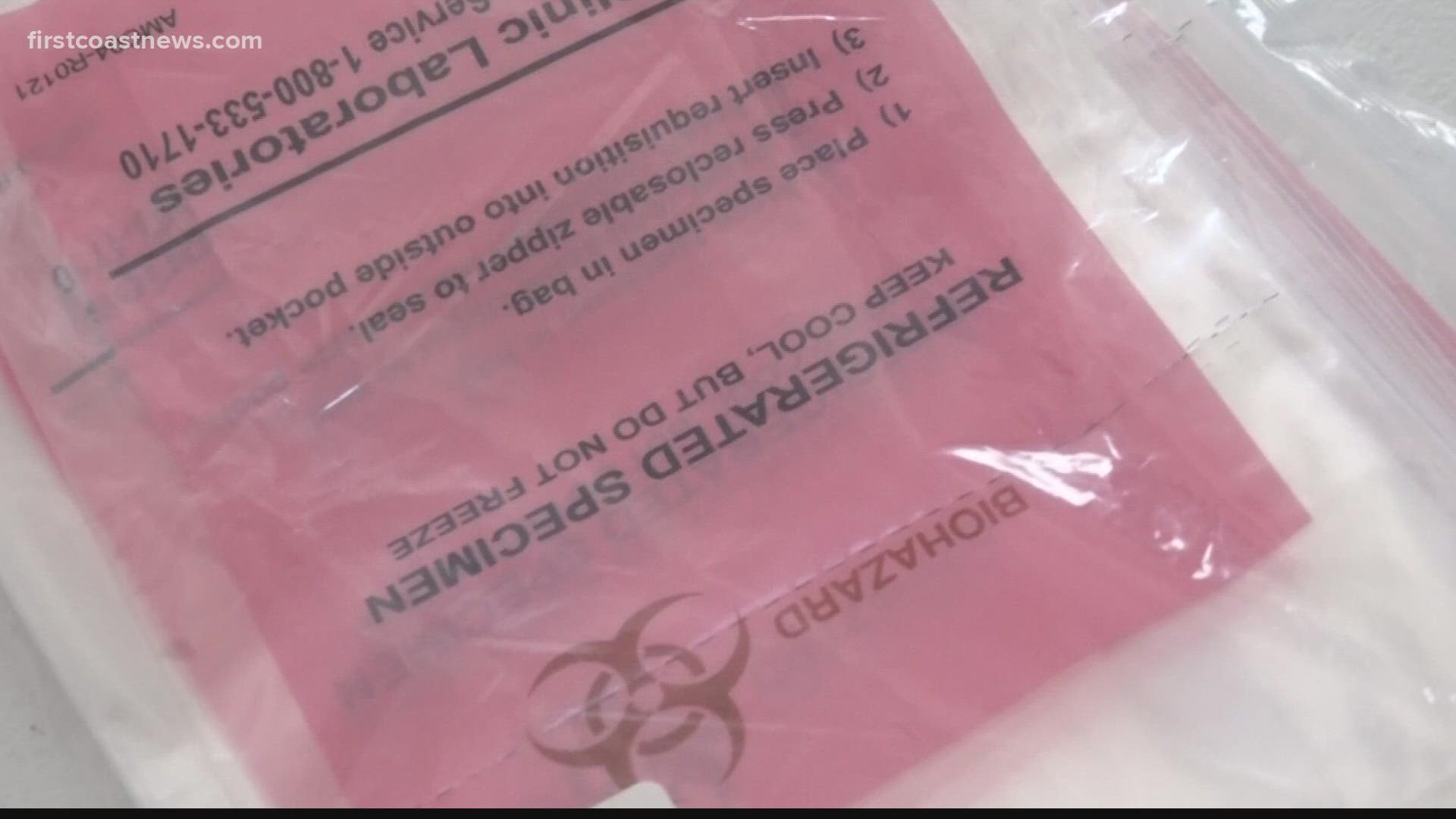JACKSONVILLE, Fla. — Cases of COVID-19 among children, specifically younger than 12-years-old, are soaring.
Since the start of August, the number of confirmed cases in that age group has increased by almost 10,000, according to data from the Florida Department of Health.
Between Aug. 6 - Aug. 12, there were 16,754 new cases of COVID among children younger than 12. Between Aug. 13 - Aug. 19, new cases in that age group increased to 20,331.
There were 26,475 new cases by the week of Aug. 20 - Aug. 26, the highest number of new cases among any age group that week in the state.
"It really should be called 'COVID-21' because it's almost a different virus in terms of how contagious this variant is," Dr. Mohammed Reza, a local infectious disease specialist, said. "This virus is not sparing children. It's infecting everyone."
According to Reza, someone infected with the delta strain can infect eight to nine other people. Someone infected with the previous strain could infect one to two other people.
In August, there were 110 COVID-positive pediatric patients admitted to Wolfson Children's Hospital, according to a spokesperson for the hospital. In the month of July, there were 96 COVID pediatric patients. In June, there were 22.
Throughout the month of August, the number of patients has fluctuated. As of Aug. 31, there were 17 children at Wolfson, four of them in the ICU. This is compared to nine children on Aug. 1, with two of them in the ICU.
"We're likely seeing the tip of the iceberg here," Reza said. "That's the concerning part. Now, because a lot of kids may be asymptomatic, or have no symptoms, or mild symptoms, they're not getting tested."
Reza said this age group is especially vulnerable because they can't get vaccinated.
"For me, it's personal because I have three young children. They're two, four and six and are not able to get vaccinated. We've done everything possible in our powers to keep our children safe from this virus. So, when we saw this, it was eye-popping to me as a parent and as an infectious disease specialist," Reza said. "But as an ID doctor, this is kind of what you expect from such a contagious variant of this virus."
"I think as the whole back to school stuff and some of that testing goes I actually think it's going down in the school-aged kids," Florida Governor Ron DeSantis said Monday at a press conference in Jacksonville. "I just think that they're testing so much that the numbers are being held, but the percent positive I do think is going down."
Reza said he doesn't agree with that statement. He said if anything, we're undercounting the number of positive cases.
"The percent positivity looks at the number of tests being done and how many of those tests are coming back positive. The more tests are being done because there's more symptomatic children," Reza said. "My concern is we're undercounting the number of infected children at this point, and we're seeing just the tip of the iceberg with the positive positive cases that are coming back.”
Reza said he thinks part of the spike in COVID cases among this age group is due to schools reopening.
"Sadly, it's likely due to all these kids coming back together, possibly in the school setting, without those mitigating factors that we know work to prevent transmission of this virus, which includes masking, which is one of several things, social distancing as much as you can, as well as having everyone around these children fully vaccinated as well as masked," Reza said.
Reza said with the way data is trending now, he's worried pediatric hospitals, like Wolfson, will be overwhelmed soon.
“My fear is what we're seeing in other states where they've had a large increase in pediatric population having COVID and not being able to provide the care that these children deserve and need at that point," Reza said.
Federal COVID data shows 230 pediatric COVID patients in Florida hospitals Aug. 31 compared to 116 Aug. 1.
Reza said 1 to 1.2 percent of children with COVID will end up in the hospital, but children could bring the virus home as well.
"Children that may be mildly symptomatic at that age range, or no symptoms, could be quite infectious," he said. "My wife is pregnant. She's immunocompromised. She's vaccinated, but we know these vaccines are just not as effective in that immunocompromised population."
"So, bringing this virus back home to us would be detrimental to the grandparents that live with us to other immunocompromised people that live with us, and then I will speak for multiple families across the state that have extended family members or immunocompromised people living with them. That's the concern we have as well," Reza added.
Reza said more than 10 percent of children with COVID could end up with long-term symptoms, even if they don't show symptoms initially of the virus.
“What are we setting our children up for as they grow older? That child that has fibrosis, which means hardening of their lung tissue, how are they going to do when they're 20, 30, 40, 50, 60," he said. "It's a lifelong ailment that we're exposing these children to without knowing the consequences, the long-term consequences."
"It's just heartbreaking to me as a parent to see that this, something that's so preventable, now why are we not protecting the most vulnerable in our population, the most prized people in our population, which are kids," Reza added.

